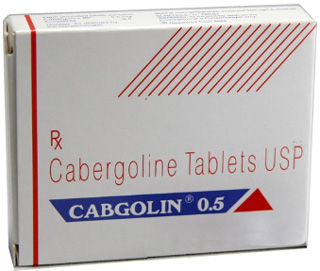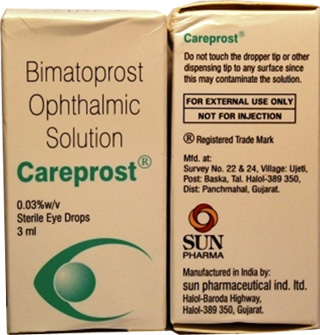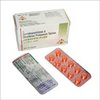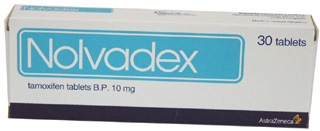Drug Name
Cabgolin (Cabergoline)
Drug Uses
Cabgolin is in a group of drugs called dopamine receptor antagonists. It works by reducing the amount of prolactin (a hormone) that is released from the pituitary gland.
Cabgolin is used to treat a hormone imbalance in which there is too much prolactin in the blood (also called hyperprolactinemia).
Cabgolin may also be used for other purposes not listed in this medication guide.
How to use
Take this medication exactly as it was prescribed for you. Do not take the medication in larger amounts, or take it for longer than recommended by your doctor. Follow the directions on your prescription label.
Your doctor may occasionally change your dose to make sure you get the best results from this medication.
Cabgolin is usually taken twice each week for at least 6 months. Do not take this medication every day unless your doctor tells you to.
To be sure this medication is helping your condition, your blood will need to be tested on a regular basis to measure your prolactin levels. Your doctor may want to continue checking your prolactin levels for several months after you stop taking Cabgolin. Do not miss any scheduled appointments.
Drug Class and Mechanism
Cabgolin is used for treating disorders associated with high levels of the hormone prolactin, either due to tumors in the pituitary gland or to unknown causes. It may also be used for other conditions as determined by your doctor.
Cabgolin is a dopamine receptor agonist. It works by blocking prolactin secretion from the pituitary gland.
Missed Dose
Take the missed dose as soon as you remember. If it is almost time for your next dose, skip the missed dose and take the medicine at your next regularly scheduled time. Do not take extra medicine to make up the missed dose.
Storage
Store Cabgolin at room temperature away from moisture and heat.
Warnings/Precautions
Do NOT use Cabgolin if:
you are allergic to any ingredient in Cabgolin or to ergot derivatives (eg, ergotamine)
you have uncontrolled high blood pressure
if you have a history of certain fibrotic (scarring) disorders (eg, of the lung, heart, kidneys)
you are taking a butyrophenone (eg, haloperidol), metoclopramide, a phenothiazine (eg, chlorpromazine), or a thioxanthene (eg, thiothixene)
Some medical conditions may interact with Cabgolin. Tell your doctor or pharmacist if you have any medical conditions, especially if any of the following apply to you:
if you are pregnant, planning to become pregnant, or are breast-feeding
if you are taking any prescription or nonprescription medicine, herbal preparation, or dietary supplement
if you have allergies to medicines, foods, or other substances
if you have liver problems or high blood pressure, or if you take medicine that may lower your blood pressure
if you have certain serious problems caused by pregnancy (eg, high blood pressure, seizures)
Possible Side Effects
All medicines may cause side effects, but many people have no, or minor, side effects. Check with your doctor if any of these most COMMON side effects persist or become bothersome:
Constipation; dizziness; headache; indigestion; nausea; tiredness or weakness; vomiting.
Seek medical attention right away if any of these SEVERE side effects occur:
Severe allergic reactions (rash; hives; itching; difficulty breathing; tightness in the chest; swelling of the mouth, face, lips, or tongue); behavior changes (eg, aggression, increased gambling or sexual urges); chest pain; confusion; cough; depression; fainting; hallucinations; irregular heartbeat; mood or mental changes; shortness of breath; sudden unexplained weight gain; swelling of hands or feet; vision disturbances.
More Information
If you have any questions about Cabgolin, please talk with your doctor, pharmacist, or other health care provider.
Cabgolin is to be used only by the patient for whom it is prescribed. Do not share it with other people.
If your symptoms do not improve or if they become worse, check with your doctor.













Reviews
There are no reviews yet.